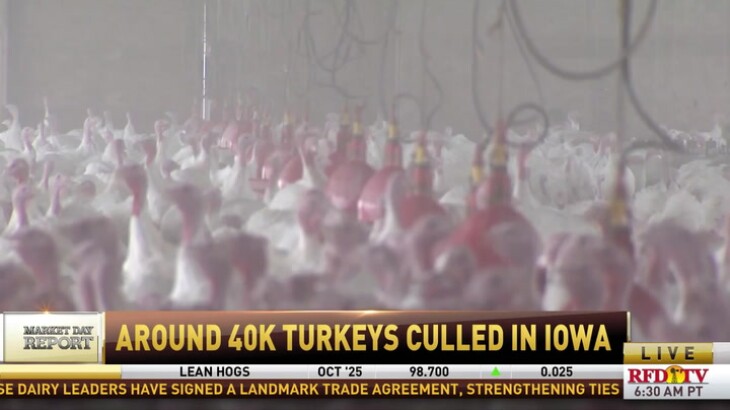CALHOUN COUNTY, Iowa (RFD-TV) — State agriculture officials confirm that about 42,000 turkeys have been culled after a new detection of Highly Pathogenic Avian Influenza (HPAI, H5N1) in a commercial turkey flock in Calhoun County, Iowa.
The Iowa Department of Agriculture and Land Stewardship says this marks the eighth HPAI detection in domestic birds in the state this year. The flock was depopulated to prevent further spread. Approximately 42,000 birds were affected in the outbreak, officials said.
Officials continue to urge poultry producers and backyard flock owners to strengthen biosecurity measures, such as limiting exposure to wild birds and closely monitoring for signs of illness.
The Centers for Disease Control and Prevention maintains that the threat to public health remains low, and poultry and eggs remain safe to eat when properly cooked to an internal temperature of 165 degrees Fahrenheit.
HPAI has had a significant impact on other states, such as South Dakota, this year, particularly within the turkey industry, which has seen a 3 percent decline in production.
